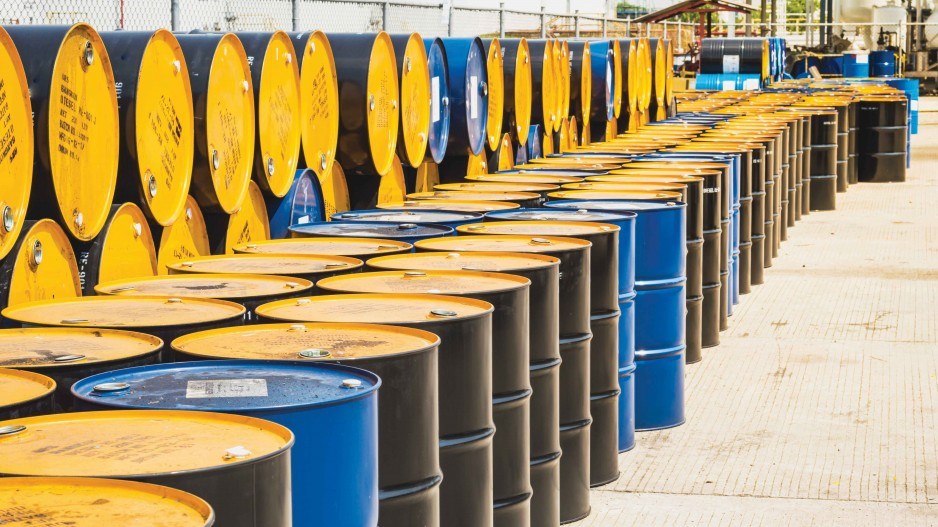Even if Teck Resources (TSX:TECK.B) had not fallen on its sword, and even if the federal government had greenlighted the Frontier oilsands project in Alberta, there are serious questions about whether the project would have been built.
Teck had no plans to follow through on the $20 billion project any time soon, and by the time it did, who knows where oil prices and climate change legislation would be?
The question for Canada now is this: If a major Canadian company that has committed to carbon neutrality by 2050 and garnered support from all affected Indigenous groups can’t make a strong enough economic and social-licence case for building a new oilsands project in a province that loves oil and in a country with strong new climate change policies, who can?
Alberta Premier Jason Kenney is already floating the idea of his government financing oilsands development, after Teck’s withdrawal of its project from the environmental process, which suggests the answer is “No one in the private sector.”
“I do think this does represent the last very large-scale mining project being advanced in the oilsands at this point in time,” said Kevin Birn, vice-president of North American crude oil markets for IHS Markit.
In his carefully crafted letter to Environment Minister Jonathan Wilkinson, Teck CEO Don Lindsay suggests Canada and Alberta haven’t figured out how to be both oil producers and climate change leaders, and until they do, “there is no constructive path forward for the project.”
Simon Fraser University sustainable energy economist Mark Jaccard isn’t convinced that a lack of clarity on climate change policies and resource development is Frontier’s main obstacle. He points to a $30-per-tonne industrial carbon tax on heavy emitters and a 100-megatonne cap on oilsands emissions in Alberta.
“Climate policy affecting oilsands could not be clearer,” Jaccard said. “ I suspect that the real issue is that global oil demand growth might slow, and one day decline, while alternative oil supply is cheaper than oilsands.”
Moreover, international lenders and investors are beginning to factor “climate risk” into their decisions. Some are pulling out of Alberta’s oilsands altogether. Major oil companies have also divested from Alberta’s oilsands in recent years.
Under its “stated policies” scenario, the International Energy Agency (IEA) does not expect the global growth in demand for oil to begin peaking until 2030.
It predicts a continued demand for heavy oil and bitumen from Canada, with production in Canada to increase by 600,000 barrels per day (bpd) by 2040. Frontier would have represented nearly half of that – 260,000 bpd.
So the demand is there, according to the IEA. The question is whether Canada can compete with other heavy oil producers to meet it.
Despite Prime Minister Justin Trudeau’s insistence that Canada is committed to “creating good jobs and developing our natural resources sustainably, in Alberta and across the country,” the reality is that the Frontier project caps an estimated $120 billion worth of major energy projects – pipelines and liquefied natural gas facilities – either rejected by the Trudeau government or abandoned by major energy companies.
Canada is so divided over fossil fuel development, climate change and Indigenous relations that the Trudeau government found it necessary to buy the Trans Mountain pipeline and will end up paying billions more to complete its expansion than it would have cost if Kinder Morgan (TSX:KMI) had not been scared off by internecine Canadian disputes.
Teck’s announcement that it was withdrawing Frontier from the environmental review process came at a time when Canada is becoming paralyzed by protests and blockades over the Coastal GasLink pipeline, which enjoys the support of all 20 First Nations along the pipeline route – with the exception of a small group of Wet’suwet’en hereditary chiefs.
The message that Canada is telegraphing to the global investment community is so negative that it may have even scared off at least one U.S. renewable energy investor. Eric Denhoff, a former deputy minister of environment and climate for Alberta, is semi-retired, but still performs consulting work. He was shocked when an American investor called last week to find out what was going on in Canada, and then told him he had decided against putting money in a renewable energy project in the country.
“I was surprised about anybody in another industry being nervous about investing in Canada,” said Denhoff, who did not want to identify the investor. “There was no one big issue, and there was no ‘Well, we’re never going to work in Canada again.’ It was just sort of ‘Well, let’s wait a little while – let’s see how this chills out. Let’s give it a year,’ which really surprises me.”
See companion story, Is there an economic case for Frontier?




